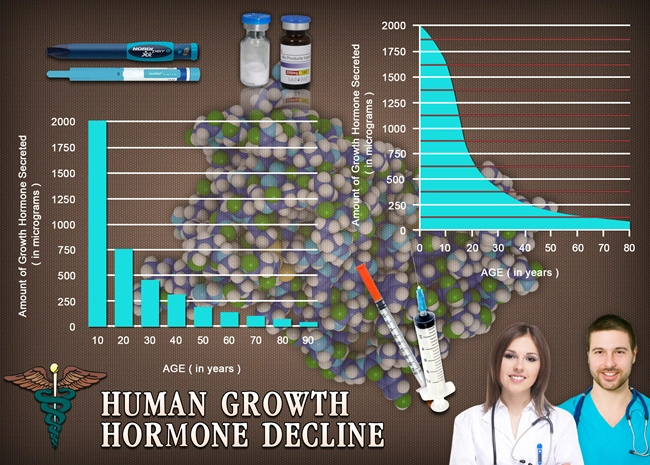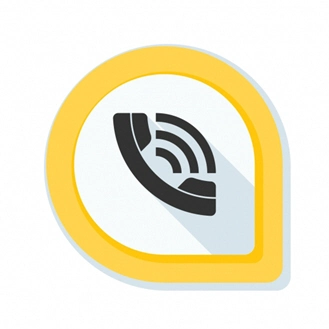
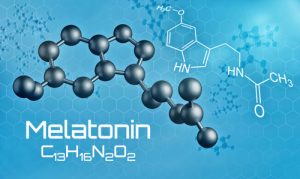 In our increasingly fast-paced, 24/7 connected, “do much more with much less time” society, getting a good night's sleep has, for all-too-many people become a luxury, rather than the necessity that it is.
In our increasingly fast-paced, 24/7 connected, “do much more with much less time” society, getting a good night's sleep has, for all-too-many people become a luxury, rather than the necessity that it is.
The pace of modern life, with a plethora of distractions and an ever-increasing workload, can make getting a good night's sleep challenging...far more difficult than in the past. In desperation, many have turned to sleeping pills. But this approach has its drawbacks.
Video Link: https://vimeo.com/255866381
Video Download: Click Here To Download Video
Video Stream: Click Here To Stream Video
Sleeping Pills Have Side Effects
Here are a few of the potential side effects of sleeping pills:
- Burning or tingling in the hands, arms, feet, or legs
- Changes in appetite
- Digestive problems
- Difficulty keeping balance
- Dizziness
- Drowsiness
- Dry mouth or throat
- A headache
- Impairment the next day
- Stomach pain or tenderness
- Uncontrollable shaking of a part of the body
- Unusual dreams
- Weakness
- Sleepwalking
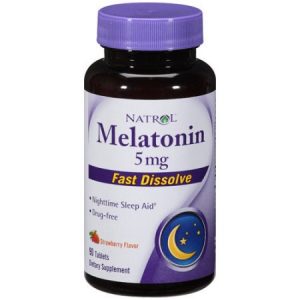 Faced with these complications, many people have tried the hormone melatonin to help them sleep. You’ve probably heard about melatonin.
Faced with these complications, many people have tried the hormone melatonin to help them sleep. You’ve probably heard about melatonin.
It’s a supplement that’s been around for a few decades now. It was initially promoted as a cure for jet lag and even ordinary insomnia.
To the surprise of many doctors, further research on melatonin has uncovered many additional benefits.
Many of these benefits have only been discovered in the past five years. Melatonin has been shown to be a potent anti-oxidant with extraordinary anti-inflammatory effects. Before we discuss these extra benefits, let's take a look at...
How Melatonin Works
Melatonin is secreted by the pineal gland from deep inside the brain. Melatonin is derived from the amino acid L-tryptophan, and its molecular structure gives it incredible anti-oxidant capabilities. The most prominent influence on melatonin is light, which suppresses the secretion of melatonin. Darkness has the opposite effect by signaling the pineal gland to release the hormone.
The pineal gland does not produce melatonin during daylight hours. But at night, the suprachiasmatic nucleus stops receiving sufficient light signal. This tells the pineal gland to start producing melatonin.
When melatonin is produced, it enters the blood stream and immediately begins to circulate. Once the pineal begins to secrete melatonin, it will continue to do so until the first light of dawn, when the levels of melatonin drop, and this encourages wakefulness.
The critical thing to remember is this: it is not just time that is the only consideration for melatonin release. Even if it is night, if there is light, the pineal gland will be active, but no melatonin will be disseminated. This is why it is of vital importance to sleep in total darkness, with no television, computers, cell phones, or glowing clocks in the bedroom.
The regular cycles of melatonin production and release tend to slow down, due to several causes: aging, medications, and exposure to light in the evening. The potential health consequences appear to be devastating. In fact, some scientists have suggested that years of working the night shift can lead to several harmful effects...even cancer.
 This is why melatonin supplements are worth their weight in gold.
This is why melatonin supplements are worth their weight in gold.
Supplements of melatonin can get the body's circadian rhythm back in balance, which is the key to melatonin's ability to deliver deep, restorative sleep....and several other benefits.
This circadian rhythm is especially important to older people since the production of melatonin declines with age. This decline leaves older folks with less protection from neurodegenerative diseases such as Alzheimer's disease, Parkinson's disease, and stroke.
Let's take a look at the many ways that melatonin can protect your health.
Melatonin's Benefit
- Anti-aging. Melatonin is a potent anti-oxidant. In fact, the Life Extension Foundation has referred to melatonin as one of the most potent and effective antioxidants known. This miracle hormone can protect lipids and protein and attacks some of the most dangerous free radicals in the body: hydroxyl radicals and hydrogen peroxide. Also, melatonin can cross the blood-brain barrier to protect the brain, and also provides almost total protection, since it can spread into cells.
- Inducing deep, restorative sleep. The good news here is that melatonin's sleep-promoting effects increase as people get older. The pineal gland, which is responsible for producing melatonin, undergoes calcification as we age. Research has shown that the degree of calcification is directly related to the individual's capacity to produce melatonin. The more the pineal gland calcifies, the harder it is to get to sleep, and memory disorders increase. Melatonin is particularly useful for elderly people in protecting their brains and helping them get to sleep.
- Alzheimer's disease protection. Many Alzheimer's patients suffer from insomnia and increased confusion due to lack of sleep. Melatonin has been proven to benefit them, as well as demonstrating the ability to lessen cognitive deterioration, possibly by protecting brain cells from beta-amyloid, a toxic protein.
- Helping patients with Parkinson's disease. This horrible affliction has been associated with decreased melatonin secretion in the brain. Supplemental melatonin can lessen the effects of this disease.
- Limiting the damage from a stroke. A massive stroke can cause severe, irreparable damage to the brain. Research has shown that melatonin may be able to offer brain protection by limiting the area of brain tissue damage and decreased brain cell death. This may be due to melatonin's free-radical scavenging and antioxidant abilities.
- Melatonin also can reduce blood pressure. This, in and of itself, can ward off a stroke from happening in the first place — levels of melatonin drop dramatically in patients who suffer a severe brain injury. Melatonin supplements can help restore normal levels.
- Prevention and reduction of jet lag. This is one of the more well-known benefits of melatonin. Traveling through several different time zones in a short
 period can result in fatigue and insomnia, and the more time zones someone moves through, the harder it is to get back to normal. This is why jet lag hits some people so hard...they feel fatigued, and their eating times are way off synch.
period can result in fatigue and insomnia, and the more time zones someone moves through, the harder it is to get back to normal. This is why jet lag hits some people so hard...they feel fatigued, and their eating times are way off synch. - If that weren't bad enough, there are other concerns about long-distance flying. Difficulty in getting to sleep on the plane, caffeine, and alcohol all combine to take their toll. A recent survey found that around 50% of all business travelers suffer from jet lag on long-distance flights. As a result of this, their performance and productivity were directly affected. Melatonin works wonders in dealing with these problems by helping to re-synchronize the body's circadian rhythms, which allows the traveler to adapt to local time.
- Protects vision. Melatonin is an excellent antioxidant that helps fight the formation of cataracts. According to the groundbreaking book, The Melatonin Miracle by Walter Pierpaoli, MD, melatonin is also produced in the retina of the eye as well as the pineal gland. Melatonin protects the retina. As its levels decrease with age, you can become at higher risk for retinal disease. Finally, as they say in infomercials: “but wait, there's more”! Age-related macular degeneration (AMD) and glaucoma have also been responsive to increased melatonin levels.
- Cardiovascular protection. Melatonin normalizes cholesterol and blood pressure. It helps prevent dangerous plaque buildup in arteries as well as heart attack/ strokes. Melatonin scavenges free radicals produced during a cardiovascular injury while increasing anti-oxidant enzymes. This prevents further oxidative damage and contains the size of heart cell death (infarction).
- Melatonin also strengthens the heart's pumping action and protects mitochondria (the energy sources so essential to cardiac muscle function) during ischemia (restriction of blood supply to tissues. This causes a shortage of oxygen and glucose needed to keep tissue alive) and reperfusion (the action of restoring the flow of blood to an organ or tissue, usually after a heart attack or stroke).
- Fights Cancer. Melatonin's ability to impede cancer cell multiplication and growth, as well as causing cancer cells to die (“apoptosis”) has been documented in cancer patients. Melatonin helps decrease the spread of cancerous cells from one body part to another and has shown promise in fighting a
 wide variety of cancers, including breast, liver, non-small-cell lung cancer, and brain metastases from solid tumors.
wide variety of cancers, including breast, liver, non-small-cell lung cancer, and brain metastases from solid tumors. - Also, melatonin may also help counter the toxic effects of chemotherapy. Many researchers are absolutely convinced that melatonin will play an increasingly important role in both the treatment and prevention of cancer as more is learned and taught about its extraordinary properties.
- Promote psychological health. Melatonin helps fight stress, anxiety, depression and mood disorders aggravated by irregular sleep patterns. Also, melatonin may be a valuable tool in migraine prevention. A study has indicated that a migraine sufferer may be able to reduce the frequency and severity of his headaches by using melatonin.
- Lessens digestive disorders. The human gastrointestinal tract is the cause of some of the worst oxidative stress our bodies can experience. Melatonin protects against damage to the stomach and the pancreas and speeds up the healing of ulcers by increasing blood flow. Melatonin has also been shown to alleviate gastroesophageal reflux disease (GERD, also known as “heartburn”). This is due to melatonin increasing blood flow and anti-inflammatory molecules in the esophageal mucous, which prevents serious injury to the esophagus.
- Increased sex drive. Melatonin helps boost the natural production of your sex hormones by regulating the pineal gland.
- Immune Booster. Melatonin is also produced in your digestive tract which is also the “home” of your immune system. As melatonin decreases with age, your immune system can become less efficient leaving you at risk for a disease.
- Attacks diabetes. Diabetes is in the dreaded family of “free radical diseases.” Research has shown that people with type 2 diabetes and retinopathy experience lower levels of melatonin secretion. This is thought to be a result of melatonin's ability as a free-radical scavenger.
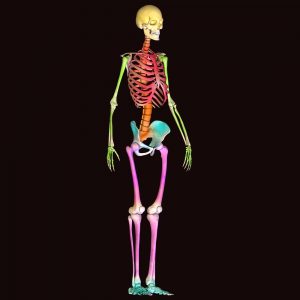
- Protecting your bones against osteoporosis. Researchers found that giving melatonin to senior lab animals resulted in bones that were denser, less brittle, more flexible, and less prone to breakage. The researchers felt that the same effect could likely translate to humans. Here's a possible explanation...
- Bones are built through cells called osteoblast. The formation of osteoblasts occurs during daytime hours. Osteoblasts are, mostly, “baby” bone cells that eventually mature into new bone tissue. At night, however, these baby bone cells are torn down by osteoclasts – cells that destroy bone tissue. As you get older, you sleep less at night, and the bone-destroying osteoclast process becomes more active. With the decreased production of melatonin in elderly people, getting sufficient sleep becomes more and more difficult.
- One thing that slows down the bone-breaking down process is more sleep. So, getting deeper, longer sleep at night helps bones remain stronger, for more extended periods of time. This is where melatonin comes in. Melatonin promotes deeper, longer, healthier sleep and restoring circadian rhythms – your body’s natural time clock. Simple logic!
How to Enjoy the Benefits of Melatonin
 While research continues, there is no need to wait decades to begin supplementing with melatonin. In general, after age 40, melatonin levels start to decline. This is when supplementing with melatonin should begin to ensure the most anti-aging, health-preserving benefits.
While research continues, there is no need to wait decades to begin supplementing with melatonin. In general, after age 40, melatonin levels start to decline. This is when supplementing with melatonin should begin to ensure the most anti-aging, health-preserving benefits.
However, don’t fall into the thinking that if a little melatonin is useful, more will be better. Not true. You only want to replace what has decreased with age. Here are some recommended doses...
What is the Recommended Dosage?
Here a simple chart is taken from The Melatonin Miracle to help you determine the right amount of melatonin for you. Doses should be taken 15-20 minutes before bedtime.
Age Dose
40-44 0.5 to 1 mg
45-54 1 to 2 mg
55-64 2 to 2.5 mg
65-74 2.5 mg to 5 mg
75 plus 3.5 to 5 mg
What is the Best Type of Melatonin?
Choose synthetic melatonin. According to Vanderbilt University research, synthetic melatonin formulas are closer to the molecular structure of melatonin and are made from safe, pharmaceutical-grade ingredients. “Natural” melatonin can contain animal substances that can carry viruses and other biological forms.
Remember to discuss this with your physician or professional health care provider if you are taking the prescription drugs warfarin (Coumadin), fluvoxamine (Luvox), or nifedipine (Procardia).
Now you have the facts. Melatonin is increasingly looking like “the gift that just keeps on giving.” More benefits from this supplement are being discovered continuously, and the research is continuing. Many scientists believe that what we have learned so far is merely the tip of the iceberg of melatonin's growing array of beneficial effects.
Once thought to be only the sleep hormone, melatonin is turning out to more...much, much more. When you consider the fact that melatonin is safe, since there has never been a single case of melatonin overdose, and no evidence that melatonin has any toxic properties, melatonin may be something to consider adding to your supplement program.
References
PDR for Herbal Medicines, 3rd ed. Thomson PDR, Montvale, NJ, 2004.
Wang J, Wang Z. Role of melatonin in Alzheimer-like neurodegeneration. Acta Pharmacol Sin 2006;27(1):41-9.
Srinivasan V, Pandi-Perumal SR, Cardinali DP, Poeggeler B, Hardeland R. Melatonin in Alzheimer’s disease and other neurodegenerative disorders. Behav Brain Funct 2006, 2:15 (published online: doi:10.1186/1744-9081-2-15).
Ellenbogen JM, Hulbert JC, Stickgold R, Dinges DF, Thompson-Schill SL. Interfering with theories of sleep and memory: sleep, declarative memory, and associative interference. Curr Biol 2006;16:1290-4.
Anon. Sleep strengthens memory. Sound slumber essential to retain facts, researchers say. HealthDay News, July 10, 2006.
Di WL, Kadva A, Johnston A, Silman R. Variable bioavailability of oral melatonin. N Engl J Med. 1997;336:1028-1029.
Dollins AB, Zhdanova IV, Wurtman RJ, Lynch HJ, Deng MH. Effect of inducing nocturnal serum melatonin concentrations in daytime on sleep, mood, body temperature, and performance. Proc Natl Acad Sci. 1994;91:1824-1828.
Shirakawa S, Tsuchiya S, Tsutsumi Y, Kotorii T, Uchimura N, Sakamoto T, Yamada S. Time course of saliva and serum melatonin levels after ingestion of melatonin. Psychiatry Clin Neurosci. 1998;52:266-267.
Oaknin-Bendahan S, Anis Y, Nir I, Zisapel N. Effects of long-term administration of melatonin and a putative antagonist on the aging rat. Neuroreport 1995;6:785-788.
Contact Us Today For A Free Consultation
Dear Patient,
Once you have completing the above contact form, for security purposes and confirmation, please confirm your information by calling us.
Please call now: 1-800-380-5339.
Welcoming You To Our Clinic, Professor Tom Henderson.

- New Research on Hormone Replacement Therapy [Last Updated On: December 29th, 2024] [Originally Added On: March 12th, 2021]
- LCN2 Hormone Suppresses Hunger and Stops Cravings! [Last Updated On: January 27th, 2025] [Originally Added On: April 7th, 2021]
- The Importance of Luteinizing Hormone [Last Updated On: December 28th, 2024] [Originally Added On: April 11th, 2021]
- Andropause From The Wikipedia Encyclopedia [Last Updated On: December 29th, 2024] [Originally Added On: April 12th, 2021]
- Finally Explained: The Mysterious Pineal Gland [Last Updated On: December 28th, 2024] [Originally Added On: April 30th, 2021]
- Hormone Therapy May Help Cut Alzheimer's Risk [Last Updated On: December 30th, 2025] [Originally Added On: May 18th, 2021]
- Androgel : Men Getting Their Mojo Back! [Last Updated On: May 12th, 2025] [Originally Added On: May 21st, 2021]
- HGH Secretagogue [Last Updated On: December 29th, 2025] [Originally Added On: May 22nd, 2021]
- Hormone Replacement Therapy Safe, Study Suggests [Last Updated On: May 17th, 2025] [Originally Added On: May 24th, 2021]
- The HGH Recommended Medical Dosage - The Importance of Blood Work [Last Updated On: December 28th, 2025] [Originally Added On: May 25th, 2021]
- Act Now to Prevent the Increasingly Common Condition of Hypothyroidism [Last Updated On: October 23rd, 2025] [Originally Added On: June 21st, 2021]
- A Toxic Hormone is Altering the Sex and Reproduction of Aquatic Life in United States Streams [Last Updated On: December 26th, 2025] [Originally Added On: August 16th, 2021]
- New Research: Cognitive Therapy Could Reduce Menopausal Hot Flashes [Last Updated On: December 25th, 2025] [Originally Added On: August 16th, 2021]
- Heart Benefits From Hormone Replacement Therapy? [Last Updated On: December 24th, 2025] [Originally Added On: August 18th, 2021]
- Risks of Hormones in Early Menopause Challenged [Last Updated On: December 23rd, 2025] [Originally Added On: August 24th, 2021]
- Comprehensive Hormone Replacement Therapy with Tesamorelin [Last Updated On: May 5th, 2025] [Originally Added On: September 18th, 2021]
- Early Hormone Replacement Therapy May Lower Alzheimer Risk [Last Updated On: December 16th, 2025] [Originally Added On: October 25th, 2021]
- Stimulate HGH: Growth Hormone Secretagogue: Sermorelin Acetate [Last Updated On: December 22nd, 2025] [Originally Added On: October 25th, 2021]
- Growth Hormone Therapy Reverses Biological Age In Groundbreaking Study [Last Updated On: December 13th, 2025] [Originally Added On: October 25th, 2021]
- Estrogen HRT May Reduce Breast Cancer Risk [Last Updated On: December 10th, 2025] [Originally Added On: October 26th, 2021]
- Hormone Replacement Therapy is Safe [Last Updated On: December 17th, 2025] [Originally Added On: October 26th, 2021]
- The Benefits of IGF-1 [Last Updated On: December 12th, 2025] [Originally Added On: October 26th, 2021]
- Insulin-Similar Growth Factor Benefits [Last Updated On: December 18th, 2025] [Originally Added On: October 26th, 2021]
- Growth Hormone Dosage [Last Updated On: December 9th, 2025] [Originally Added On: October 26th, 2021]
- Growth Hormone Sprays [Last Updated On: December 8th, 2025] [Originally Added On: October 26th, 2021]
- The Best Ways to Boost Growth Hormone [Last Updated On: December 15th, 2025] [Originally Added On: October 26th, 2021]
- Growth Hormone Explained [Last Updated On: December 19th, 2025] [Originally Added On: October 26th, 2021]
- What Men Need To Know About Testosterone And Growth Hormone [Last Updated On: December 6th, 2025] [Originally Added On: October 26th, 2021]
- Growth Hormone and Gene Therapy [Last Updated On: December 7th, 2025] [Originally Added On: October 26th, 2021]
- Growth Hormone and the Law [Last Updated On: December 5th, 2025] [Originally Added On: October 27th, 2021]
- Growth Hormone and the Hypothalamus Gland [Last Updated On: December 4th, 2025] [Originally Added On: October 27th, 2021]
- Growth Hormone and Testosterone Replacement Therapy [Last Updated On: January 2nd, 2025] [Originally Added On: October 27th, 2021]
- Growth Hormone and Pneumonia [Last Updated On: December 3rd, 2025] [Originally Added On: October 27th, 2021]
- An Introduction to Growth Hormone [Last Updated On: December 2nd, 2025] [Originally Added On: October 27th, 2021]
- General Physician Versus Hormone Specialist – Some Symptoms Require a Specialist to Heal [Last Updated On: September 6th, 2025] [Originally Added On: March 18th, 2022]
- Hormone Impacts And Function Of HGH [Last Updated On: January 2nd, 2026] [Originally Added On: July 10th, 2022]
- Cheaping Out on HGH Therapy – JUST DON’T DO IT [Last Updated On: September 18th, 2025] [Originally Added On: July 12th, 2022]
- Slow Aging with Growth Hormone [Last Updated On: May 27th, 2025] [Originally Added On: July 17th, 2022]
- Hormone Therapies: How They Have Evolved and Are Evolving [Last Updated On: September 10th, 2025] [Originally Added On: February 10th, 2023]


